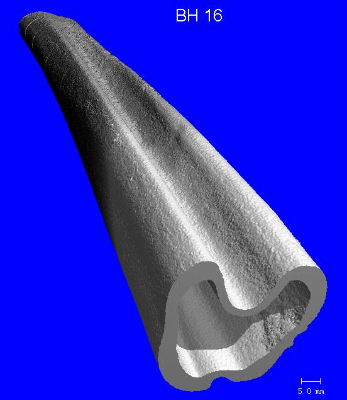Summary
This collaborative project arises from observation by biologists and veterinarians working with free ranging caribou populations that compared with historical data, female caribou with calves have a higher incident of fractures compared with other females, young caribou, or males. In other cervid species, osteoporosis has been associated with malnutrition (especially deficiencies in protein) and with mineral deficiencies or imbalances.
In order to investigate this observation, evaluation of bone mineral density (BMD) is underway on collected metatarsal bones from caribou from varying age classes, gender, and at different stages of lactation in females. BMD assessed by a number of methods including:
• Microcomputed Tomography
• Absolute bone mineral density
• Histological analyses
Whenever possible, this data will be paired with mineral levels in liver or serum. We will also assess for regional variation by comparing samples from different regions of the Northwest Territories and Greenland, which may lead to further exploration of native habitat nutrients.
Sample Microcomputed Tomography scan of metatarsal bone
Applications
The project hopes to provide insight into the observations by biologists and veterinarians that there is an apparent increase in the rate of long bone fractures in caribou (especially females with calves) during handling, and may potentially uncover nutritional issues linked to environmental change.
Contacts
Doug Whiteside
Staff Veterinarian
Calgary Zoo Animal Health Centre
1625 Centre Avenue E
Calgary, AB T2E 8K2
(403) 232-9390
Email: dougw 'at' calgaryzoo.ab.ca

